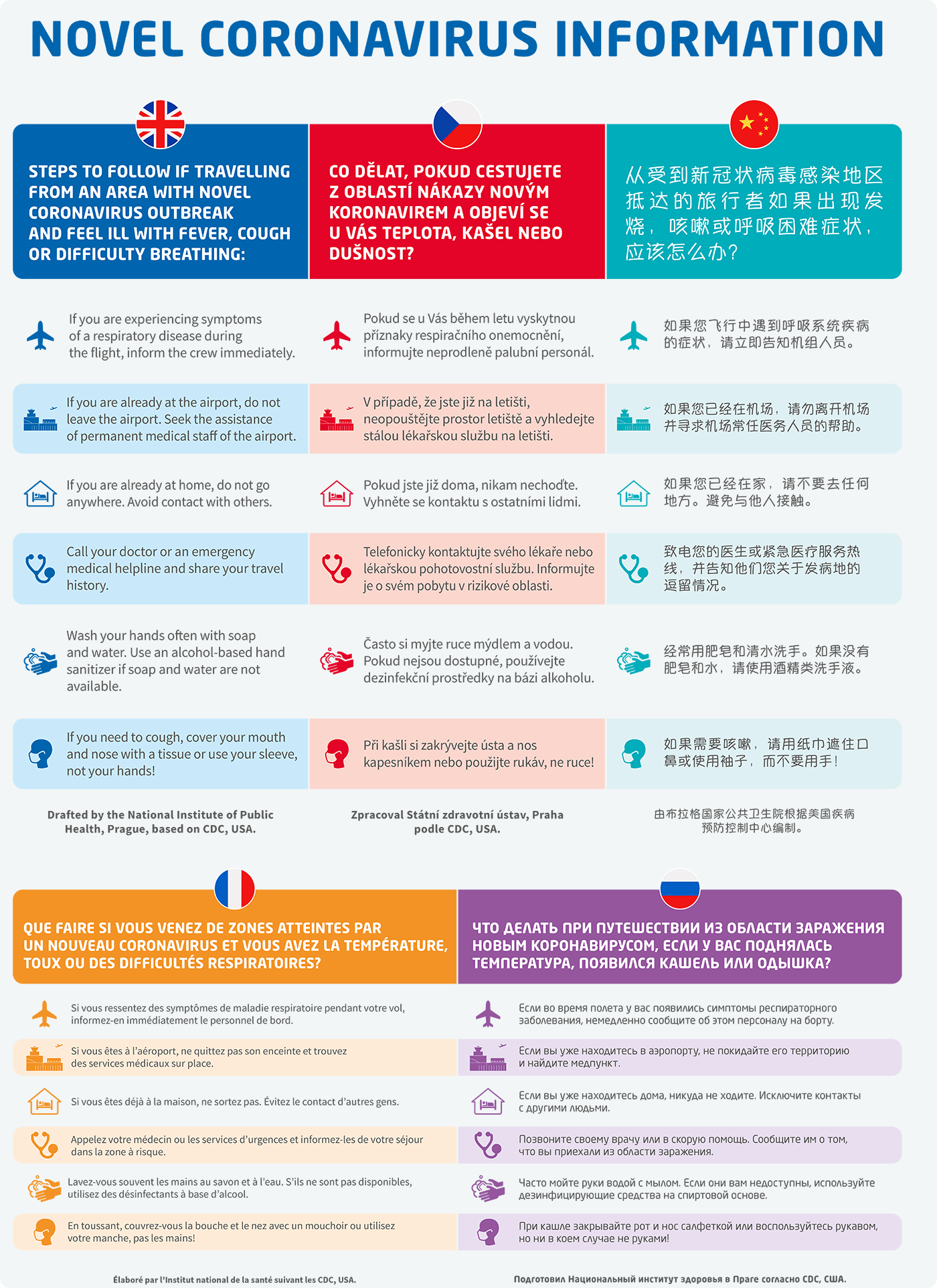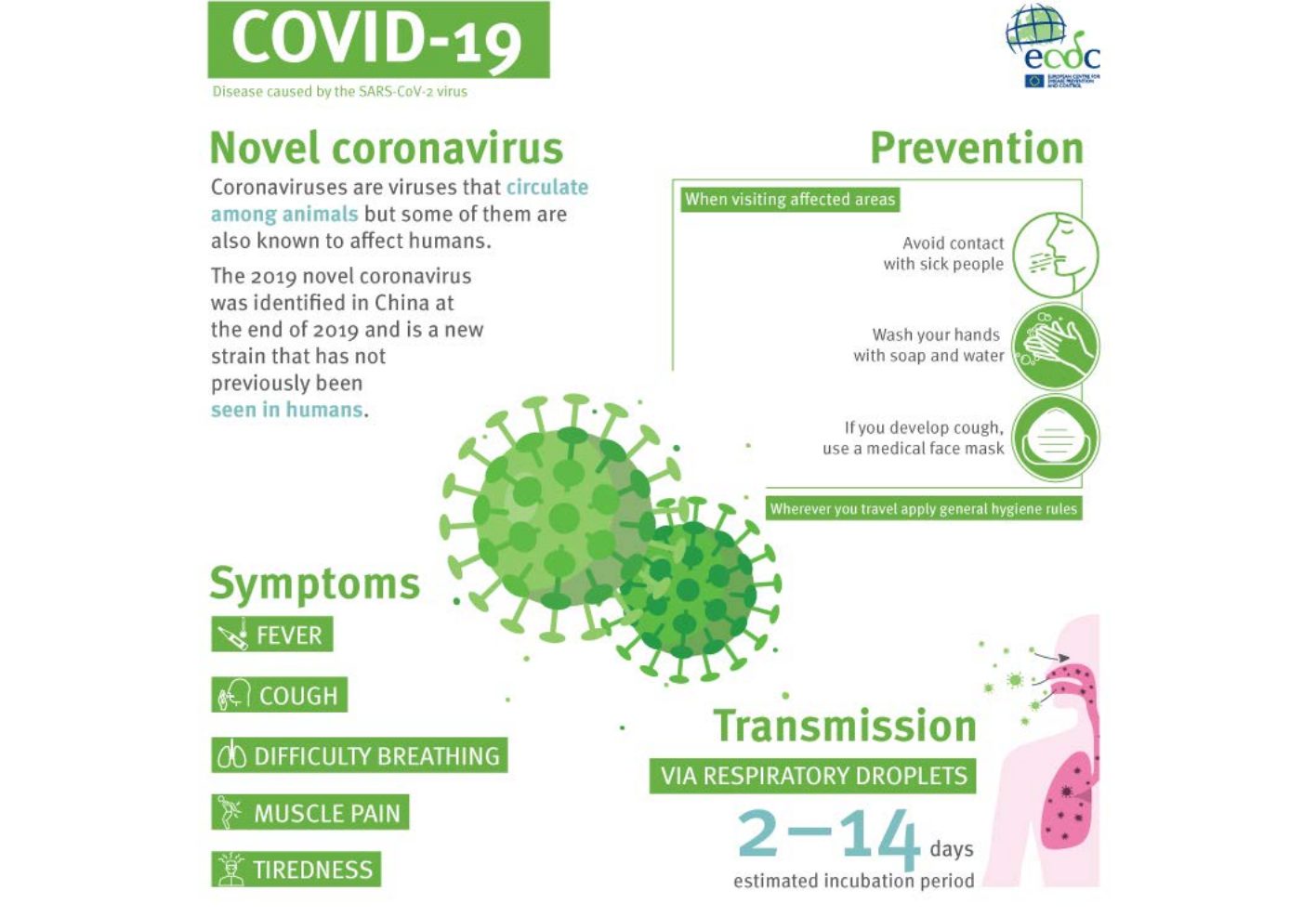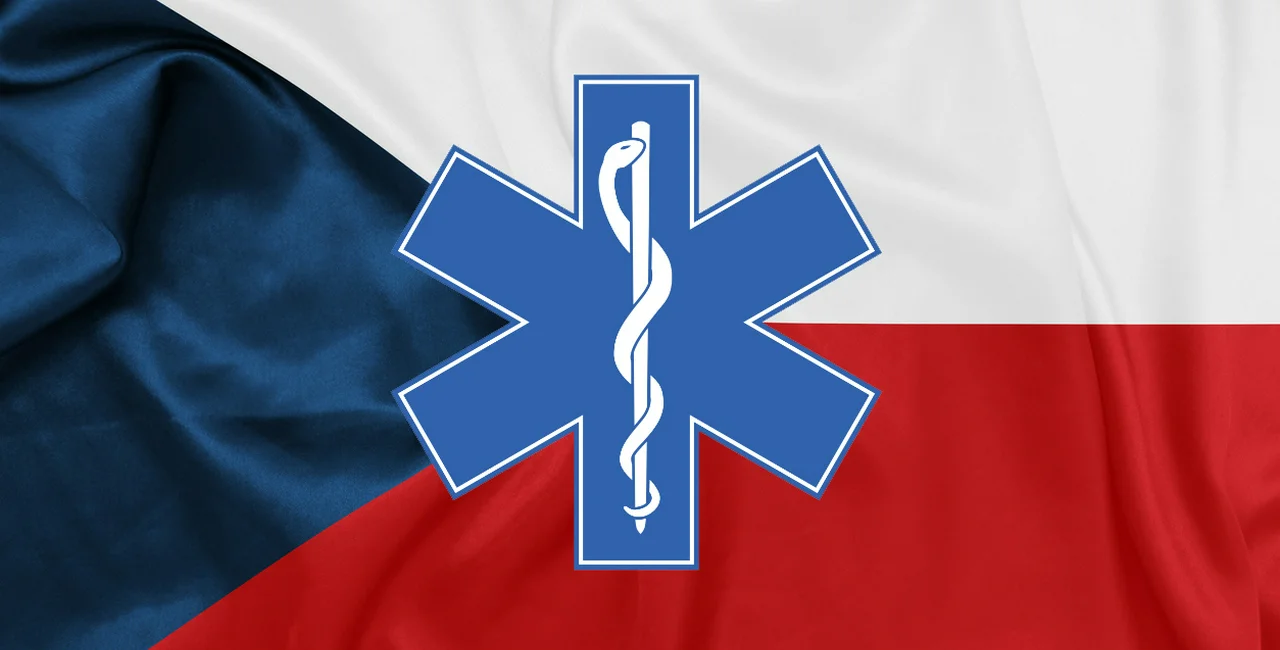This article was published on March 10 and last updated at March 18, 2020, at 2:30 pm.
As of Wednesday, March 18, there are now 464 confirmed cases of the novel coronavirus in the Czech Republic, from 7,664 tested. The largest number of cases are in Prague.
PARTNER ARTICLE
The Czech government has declared a state of emergency, banned all public events, and closed all restaurants and stores with some exceptions for food stores and vital necessities. The closure of restaurants and shops was announced March 14 and set to last for 10 days.
The government has also declared a nationwide quarantine. People should only leave their homes to go to and from work, buy essential items, go to doctor or veterinary visits, or some other exceptions. the quarantine lasts until March 24 at 6 am.
As of midnight March 18, a face mask or similar covering is required in outdoor spaces as well as indoor spaces outside the home across the Czech Republic.
If you are a resident, carry your passport and residency permit with you at all times as police and soldiers will be checking people on the streets.
Travel restrictions have been imposed for both citizens and residents. As of March 16 at 0:00 tourists are not allowed to enter from any country, but may leave. Up to date information can be found on the Ministry of Interior website.
Post offices and government offices are on limited hours. As this changes rapidly, it is best to check on the respective websites or social media.
Up to date info is being shared over Facebook on the page Corona Virus updates by Expats.cz.
Here we’ve attempted to compile some of the most common and relevant FAQs about the developing health situation from a variety of trusted sources. We’ll be updating the article as more information becomes available:
What are some sources of official information?
Official information, which changes rapidly, can be found in both English and Czech. The English pages of Czech ministries are often a bit behind the Czech versions.
Official info in English:
Official info in Czech:
There are several nonstop info lines, but mainly in Czech:
+420 724 810 106
+420 725 191 367
+420 725 191 370
Two lines staffed by medical students from Palacky University Olomouc have been set up in English, in coopperation with the regional health authority: +420 704 856 135 and +420 704 856 136 from 10 am to 7 pm.
A toll-free coronavirus info line has been established on 1212.
The emergency numbers 112 and 155 should be used only for extreme emergencies or the risk of life, not for getting basic information.
An infoline from the Prague Public Health Authority is available until further notice at 773 782 856 and 773 782 850. The operating hours are from 8.00 am to 8.00 pm.
The city has also set up a new information hotline at 800 100 991 for general and technical inquiries from the public and institutions regarding coronavirus.
The line is intended to relieve the workload of the regional public health station by answering general questions. It will be open every day from 9 am to 6 pm until further notice. The line does not serve for health consultations and citizens with health problems; they should continue to contact the info-line of the Prague Public Health Authority and the State Health Institute.
If you do not have someone who can help you with the Czech language, the Czech government suggests you contact your embassy for help.
What should I do if I am returning from a high-risk area?
According to the Ministry of Health, anyone returning to the Czech Republic from high-risk countries must stay in home quarantine for two weeks, with a 3 million CZK fine and possible jail time for violating the regulation.
Upon return contact your healthcare provider immediately — whether you are showing symptoms or not – to let them know. Your healthcare professional will work with health officials to determine if you need to be tested for COVID-19.
This applies also to those who are exhibiting symptoms of fever (38°C), cough, or difficulty breathing within the 14 days following their return as well as those who show no clinical symptoms at all.
Report all symptoms via telephone and if you do not have a regular healthcare provider The National Institute of Public Health Infoline for anyone in need of reporting a suspected case of coronavirus is available daily at: +420 724 810 106 and +420 725 191 367.
Delivery services Rohlik and Kosik have confirmed that they will deliver to people in quarantine, however, you must pay in advance online and not make contact with the delivery person. Several restaurants are still preparing food, and are working with Dáme jídlo, Wolt and other delivery services.
What exactly does quarantine involve?
The rules for quarantine have been posted in Czech, but not English, by the Health Ministry. We have made an unofficial translation.
Rules of quarantine:
Hints and recommendations for home quarantine
13. 3. 2020
You’re in home quarantine. Your condition does not require hospital admission. It is important to follow these instructions.
1. Stay at home
You or the person you care for should remain at home except for medical care (see sections 3 and 8 – what to do before seeking medical care). Do not go to work, school, public places or use public transport or taxi until you are told it is safe. If you need to procure food, other goods and medicines, you must ask someone for help. You can also order the purchase by phone or mail (online). The delivery instructions shall indicate that the purchase is to be left outdoors or on the veranda or in another suitable place.
2. Isolate yourself from other people in your home
You should stay in a well-ventilated room with a window that can be opened and, if possible, separate from other people in the home. Close the door.
If possible, use a separate bathroom. If you share the bathroom with others, regular cleaning is required. If you do not have a separate bathroom, the person in home insulation should use the device last, and then the person should clean the bathroom properly. A person in home insulation must use their own towels that are not used by other household members, both for drying after bathing or showering and for hand hygiene.
If you live in a dormitory or other place where you share a shared kitchen, bathroom and common areas, you should only stay in your room with the door closed, go out only when necessary and wear a mouthpiece.
If you share a kitchen (dorm, etc.) with other people, if possible, do not enter these areas when others are present. If it is not possible, wear a mouthpiece. Eat food in your room. Wash used dishes by hand in hot water with detergent and dry with your own cloth.
3. Call your doctor before visiting your doctor
All doctor visits should be discussed in advance by telephone. This is because there is a need to minimize contact with other people in healthcare facilities.
In case your health condition deteriorates (especially fever, cough, shortness of breath), contact your doctor by phone, who will further organize the provision of health care in cooperation with the regional hygiene station, or call 112.
If you need advice on coronavirus, nonstop lines of the National Institute of Public Health 724 810 106 or 725 191 367 or 725 191 370 are available.
4. Wear a face mask if recommended
If you have been given an oral mask, you should wear it when you are staying in the same room with other people even when you visit your healthcare provider. If you cannot wear a face mask, it should be worn by people who live with you if they are in the same room with you.
5. Cover your mouth and nose with coughing and sneezing
Cover your mouth and nose with a disposable handkerchief when coughing or sneezing. People taking care of people awaiting the results of a COVID-19 infection should also use disposable handkerchiefs for coughing and sneezing.
Throw the handkerchiefs in a plastic garbage bag (see Section 10 – Waste Management) and immediately after use wash your hands with soap and water (for at least 20 seconds), rinse and dry thoroughly. In the same way, the caregiver assists the person he / she takes care of in observing this rule.
6. Wash your hands
Wash your hands and help the person you care to wash your hands. This should be done frequently and thoroughly with soap and water for at least 20 seconds, then rinse and dry thoroughly. The same applies to people caring for anyone who is tested for SARS-CoV-2. Do not touch the eyes, nose and mouth with unwashed hands.
Which countries are considered to be high-risk areas?
- China
- Iran
- Italy
- South Korea
- France
- Spain
- Germany
- Switzerland
- Norway
- Denmark
- The Netherlands
- Sweden
- The United Kingdom
- Belgium
- Austria
The Health Ministry maintains an up-to-date list online.
Should I cancel a trip abroad or within the Czech Republic?
As of March 16, Czech citizens will not be allowed to leave the country unless they have residence in another country. Foreigners with residency permits may leave, but cannot return during state of emergency. (Tourists can also leave, but cannot re-enter during the state of emergency.)
People who have booked trips and flights abroad need to contact the hotels, travel agencies and airlines regarding cancellations and refunds. Some credit card companies may provide assistance.

The Prague Airport has compiled a useful page with travel alerts and instructions for preventing the spread of the virus. It asks passengers with canceled flights “not to come to the airport but contact the airline directly to receive information regarding alternative solutions.”
What about commuting to work?
PM Babis has said, “We want people to go to work, that’s the basis for the economy to tread,” however, those in home quarantine are entitled to receive 60 percent of their salary.
Public transit is operating, but on a reduced schedule. Tram and metro train doors are opening automatically so people do not need to touch them. On buses, the front entry is blocked to protect the driver from contact. Buses stop at all stops, so there is no need to signal bu pushing a button for request stopsd.
Hand sanitizers have been installed in metro stations.
Prague Integrated Transit (PID) has a list of alterations to the standard schedules. As of March 17, a face mask or covering is required for all passengers using public transportation.
Bus service after 10:30 pm is greatly reduced. The airport shuttle from the Main Train Station is canceled. Public transit is running on holiday schedules.
If you must commute health officials are recommending diligence in hand washing and other hygiene precautions (see resources and infographics below). The virus can survive for up to 30 minutes and can travel up to 4.5 meters.

Ozone cleaning is being deployed in all buses and trams, with priority going to buses to and from the airport, according to iDnes.cz; disinfection of poles and handles on the metro has been increased.
What do I do if I have an issue with my residency permit or visa?
People who have pending appointments concerning residency permits can find out the current situation for appointments on the ministry website. If you already have an appointment for something that can’t be done in person check with the ministry before going. Emails have been sent to most people informing them of cancellations and new dates for appointments.
Other issues should be resolved via mail or email.
Only absolutely necessary tasks will be performed at offices. All deadlines are automatically extended.
Foreigners, who were legally on the territory of the Czech Republic at the moment of the declaration of the state of emergency, may continue to remain in the territory for the duration of the state of emergency without any need to resolve their residency status issues as long as the emergency lasts.
What if I bought tickets to an upcoming concert or event?
All public events are canceled or postponed under the state of emergency. This includes planned music concerts, museum and gallery events, operas, classical concerts, tours, and major festivals including the Prague International Film Festival Febiofest and Metronome. Some events will be rescheduled.
Individual organizers of events are assessing whether the events can be rescheduled or must be canceled. Once they have made a determination, they will post information on social media or contact people directly with specific details. Tickets purchased through agencies should be refundable at the point of purchase or online.
The National Theater in Prague has cancelled the performances of all ensembles in all buildings until further notice.
Is it safe to visit public pools and the gym?
These facilities are closed.
What about hospital visits?
The Ministry of Health has banned visitors to all providers of in-patient care. The only exceptions are for inpatient care provided to minors (such as a children’s ward in a hospital) or patients with limited legal capacity, who can be visited by relatives. The ban on visits also does not apply to hospices, including services for terminally ill patients.
Should I keep my kids home from school?
Yes. As the number of coronavirus patients in the Czech Republic grows, the Czech Ministry of Health has announced some extraordinary measures in an attempt to halt the spread of coronavirus in the country.
All elementary and secondary schools throughout the entire Czech Republic have been closed, with children staying at home. Parents should have received instructions for distance learning.
Parents who must stay home with their children are entitled to receive an employee benefit called (ošetřovné) “nursing allowance” for children under 10 years of age that partially covers your income. See more about this social benefit for employees and download the necessary forms here (in CZ) .
The Ministry of Education has announced that the measure applies not only to pupils but also to pedagogical workers who should be allowed to work from home, such as assigning tasks to pupils through electronic correspondence.
Under the quarantine that started March 16, some kindergartens and nursery schools are also closed, but some remain open for parents who work and have no other option for child care.
We will continue to update this article as information becomes available. Follow Expats.cz for all the latest news related to the outbreak.












 Reading time: 11 minutes
Reading time: 11 minutes 































